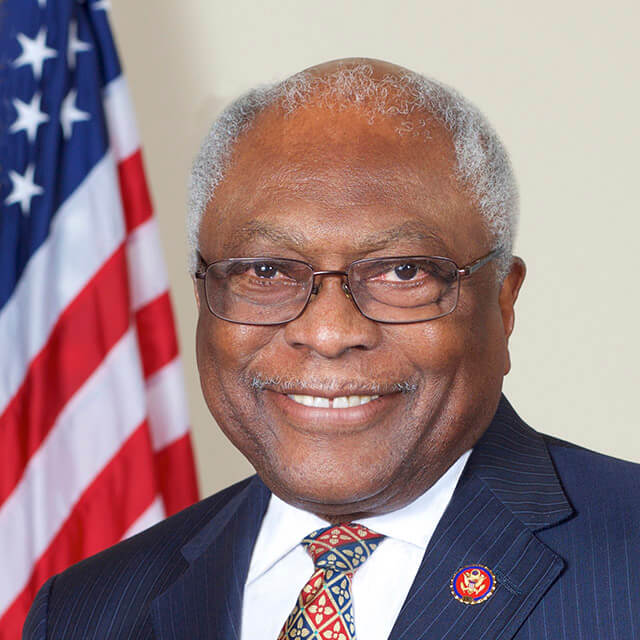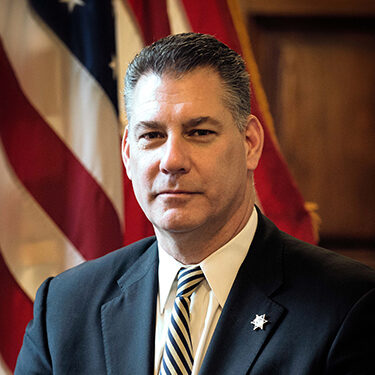OUR IMPACT
Winter 2024
Established in 2019, the nonpartisan Council on Criminal Justice advances understanding of the criminal justice policy choices facing the nation and build consensus for solutions that enhance safety and justice for all. We equip policymakers and advocates at the federal, state, and local levels with information and ideas they need to adopt reforms grounded in facts, evidence, and fundamental principles of justice.
Driving the National Conversation
CCJ has quickly become a trusted, go-to resource for leaders, journalists, and advocates across the political spectrum, from the White House to Fox News. Reporters rely heavily on CCJ findings and recommendations and turn to us frequently for expert commentary. Since our launch, our work has appeared in more than 30,000 stories in a wide array of national, local, and international outlets. CCJ products are top hits on Google searches for “recidivism,” “homicide trends,” and other key topics.
- The New York Times, The Washington Post, Fox News, FactCheck.org and other leading media outlets routinely use CCJ reports and experts to verify crime statements made on the campaign trail in major elections, including President Biden’s 2023 State of the Union address.
- In a White House press briefing, Fox News correspondent Peter Doocy cited CCJ’s crime trend reports in a question challenging President Biden’s response to violent crime.
- An ideologically diverse range of prominent media outlets routinely publish commentaries from the founders of our Centering Justice initiative, Marc A. Levin and Khalil A. Cumberbatch.
- CCJ reports and experts appear regularly in leading media, including The New York Times, the Wall Street Journal, The Washington Post, ABC News, the Associated Press, The Atlantic, Axios, CBS News, CNN, Forbes, Fox Business, Fox News, MSNBC, National Public Radio, NBC News, the New York Post, Newsweek, PBS, Reuters, Slate, TIME, USA Today, U.S. News & World Report, Vox, and The Washington Times.
Driving Policy Change in Washington
CCJ has established itself as an essential and authoritative resource at the highest levels of government. We provide testimony and briefings to Congress, the White House, and senior administration officials, and inform key policy decisions on a broad range of criminal justice and public safety issues.
- In December 2023, the U.S. Department of Justice released a violence reduction “roadmap” for cities and states based explicitly on the Ten Essential Actions report by CCJ’s Violent Crime Working Group. The roadmap organizes billions of dollars in federal grants, training and technical assistance, and other resources by the ten action steps; under a new grant award, the Police Executive Research Forum is providing assistance to jurisdictions seeking to implement the recommended strategies.
- When crime patterns started shifting rapidly in the summer of 2020, CCJ’s periodic crime trends reports began to fill a yawning gap in the nation’s understanding of what was and wasn’t happening with crime in American cities. In July 2024, the CCJ Crime Trends Working Group proposed that the essential function of producing timely national crime data be assumed by the federal government and in October the FBI announced it would soon begin publishing monthly reports.
“Two former Attorneys General – one Democrat, and the other Republican; one Black, the other Latino – they have come out with a great report. Let’s use that report as a foundation upon which to build back our judicial system.”

- The White House cited briefs from CCJ’s Veterans Justice Commission and Health and Reentry Project (HARP) in its strategic plan to improve post-incarceration outcomes, and used two other CCJ reports in developing its gun violence reduction strategy.
- The chair of the U.S. Sentencing Commission cited research from CCJ’s Task Force on Long Sentences in announcing amendments to federal sentencing guidelines.
- CCJ Senior Fellow Thomas Abt testified before the U.S. House Judiciary Committee on evidence-based strategies to reduce violent crime; President and CEO Adam Gelb testified about racial disparities before the U.S. Commission on Civil Rights.
- CCJ’s Health and Reentry Project (HARP) built the case for the Centers for Medicare and Medicaid Services to issue groundbreaking waivers to states to allow Medicaid to cover people exiting prisons and jails; as of winter 2025, 19 states had been granted waivers and applications were pending in eight additional states.
Driving Policy Change in State Capitols and City Halls
Despite geographic and ideological differences, state and local leaders have demonstrated a common trust in CCJ’s work. Our crime trend reports, violence reduction and policing roadmaps, COVID-related recommendations, and other products are serving as blueprints for state and local policymakers tackling some of the most difficult challenges of the day.
“CCJ has been doing very needed research and serving as an important convenor for conversations like this one on the most pressing challenges we’re facing with regard to crime and our criminal justice system.”

“CCJ’s efforts to reimagine the criminal justice system have already borne invaluable fruit.”

- The American Legislative Exchange Council (ALEC) has adopted several CCJ task force recommendations as ALEC model polices and resolutions, including those on veterans justice, mental illness and diversion; co-responding; corrections; and police decertification, training, and wellness.
- Nebraska in 2024 adopted the model policy generated by the CCJ Veterans Justice Commission; “Veterans Justice Act” is under consideration in several other states.
- Shortly after the police killing of Tyre Nichols in Memphis, TN, the Shelby County Commission directed its sheriff’s department to follow the reform strategies developed by the CCJ Task Force on Policing.
- A sheriff in Michigan, the Connecticut governor, and the mayor of Pittsburgh are among officials using CCJ’s 10 Essential Actions violence reduction strategy as a roadmap toward safer communities.
- Lawmakers in Alabama used CCJ data showing an increase in domestic violence at the start of the pandemic to fend off budget cuts to intervention programs.
- The House Speaker in Texas cited analysis by CCJ Chief Policy Counsel Marc Levin during consideration of state legislation targeting the use of charitable bail funds.
- The chair of the Fulton County (Atlanta, GA) Commission cited CCJ’s Task Force on Long Sentences in explaining his opposition to the construction of a new county jail.
A Credible Voice in the Business Community
Our research on crime and other issues, along with our commitment to building common ground to drive progress, make CCJ a highly credible and frequently sought collaborator in the business community.
- Our corporate partners include Bank of America, Georgia Power/Southern Company, LinkedIn, Microsoft, and the National Football League; we brief corporate leaders on overall trends and specific policy issues.
- Developing responses to the city’s violent crime problem, Greater St. Louis Inc. and the Regional Business Council relied on recommendations from CCJ’s Violent Crime Working Group in advocating for a regional strategy, including setting an annual homicide reduction goal of 10%.
- The CCJ Veterans Justice Commission worked with the Second Chance Business Coalition, Business Roundtable, Society for Human Resource Management, JPMorgan Chase and other private sector experts to craft and promote a model corporate policy to boost hiring of veterans who’ve been involved in the justice system.
Philanthropy Roundtable selected CCJ as one of six organizations “taking innovative approaches in the criminal justice space,” saying “With a wide range of members, the organization redoubled efforts to bridge partisan divides and build common ground for policies rooted in facts, evidence and fundamental principles of justice.”
Membership and Engagement
CCJ’s boards and 300+ elected Council members comprise a broad cross-section of the nation’s top leaders, experts, and innovators from law enforcement, corrections, courts, communities, advocacy, and academia, as well as formerly incarcerated people, crime victims and survivors, and others directly impacted by the system. CCJ members are routinely tapped to lead high-level initiatives, deliver keynote addresses, and serve in senior executive positions in federal, state and local administrations. By engaging members in multiple collaborative activities over time, the Council builds increasingly potent pathways for diffusion of our work and helps forge the lasting and trusting relationships that are essential to driving large-scale change.
